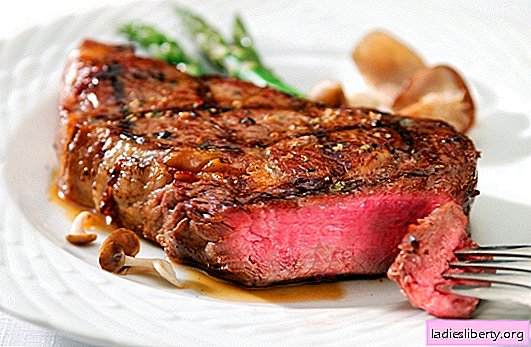
The epidemic of obesity among adults and children is one of the major public health problems worldwide. Obesity is associated with an increased risk of developing cardiovascular disease, diabetes, arthritis and some forms of cancer.
Recent studies have found that regular drinking water increases the metabolic rate. How can plain water speed up metabolism and reduce weight?
How does water speed up metabolism?
Drinking half a liter of water increases the activity of the sympathetic nervous system. Recent studies show that plain water increases blood pressure in patients with autonomic insufficiency. It has also been shown that water intake speeds up fat burning. Changes in the regulation of the cardiovascular system are due to stimulation of the nervous system.
Spanish scientists have shown that water can stimulate energy consumption by 30% for 1 hour. Taking drugs that block adrenaline receptors completely reversed this effect. Drinking water, which was heated to 37 ° C, increased metabolism by 40% in studies.
The authors concluded that an increase in water consumption of 1.5 liters will increase energy consumption by about 200 kJ / day.
Drinking up to 10 ml / kg of cold water every 40 minutes helps to lose up to 2 kg per week. The mechanism of action is not fully understood. The effect may be the temperature of the water, stretching of the gastrointestinal organs or changes in the osmolarity of blood. In healthy people with a normal weight, approximately 60-70% of the effect could not be attributed to water temperature.
In combination with a low-calorie diet, consumption of 500 ml of water reduces to 5 kg weekly. Water naturally causes a feeling of fullness, which reduces the occurrence of hunger and, consequently, re-eating.
However, it is not clear from the findings of the researchers how long this effect lasts.
There are no significant differences between eating conditions after a 12-week weight loss intervention.
Does drinking water affect appetite?
Studies of older people have shown that drinking water before each meal can reduce appetite for a 12-week period.
In one study, overweight people who consume water lost about 4 kg of weight.
The sad news for people under 25: drinking water does not affect appetite.
In studies, scientists did not reveal a link between obesity and fluid intake. However, a small American study found a link between exercise and fluid intake.
According to scientists, drinking water during strength training speeds up metabolism by 20%.
How much water do you need to lose weight?
The minimum amount of water that needs to be consumed per day has not yet been established. Recommendations to use 1.5 liters or more per day for a healthy adult can not be scientifically substantiated. Water demand may be higher at elevated ambient temperatures. However, to reduce body weight, researchers recommend drinking up to 2.5 liters of fluid per day.
Drinking excessive amounts of water (more than 20 l / day) can also cause health problems.
With the introduction of 7 liters of fluid for 4 hours, hyponatremia occurs, which ends in death.
How seriously should the miracle effect of water be taken?
Drinking water cannot replace diet and moderate exercise.
Using liquid alone is almost impossible to lose weight.
Contrary to common misconceptions, absolute fasting with constant use of fluid is ineffective in obesity.
A sharp decrease in body weight after starvation causes a rebound effect. It is characterized by a slowdown in metabolism and a quick return to lost weight.
Before starting a diet, it is recommended that you consult with a dietitian or healthcare provider to prevent possible health effects.
Researchers ’main conclusion: consuming 2 cups of water before eating helps obese patients lose weight. To confirm the conclusions of scientists, further studies with a large number of subjects are necessary.











